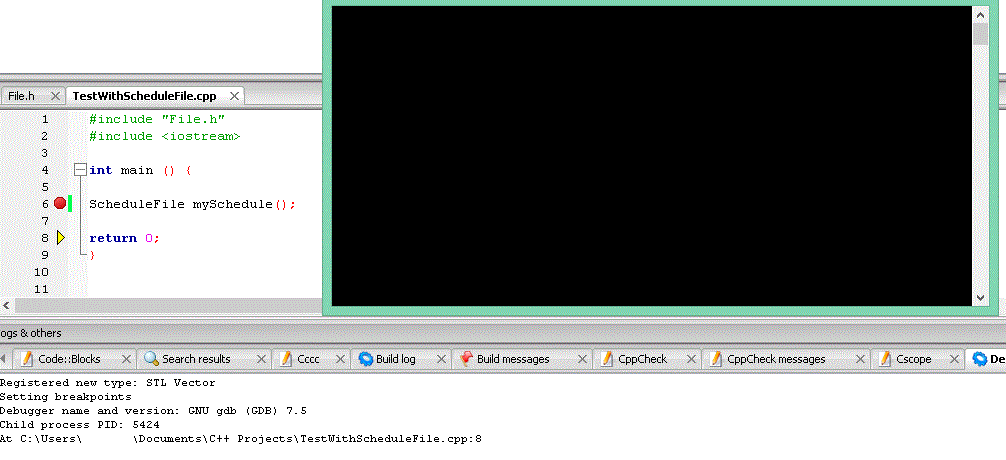I'm sorry I keep having these strange problems but there's little I can do about them, they are unpredictable.
I managed to fix the last one and I've been able to compile and run my programs.
Now however I've run in to the *strangest *of problems, the one described in the title.
I've set breakpoints in the constructor call and the header I created; and the program just skips past everything and straight to return. I have a picture:
My code does some cout statements in the header (for debugging) so there should be something in the command line window! Yet there isn't and none of the breakpoints I set in the header or the source file were hit! I have a feeling this has to do with the codeblocks IDE.
For the record it does the same thing with the release target!
Does anyone know why this might be? Maybe someone with experience with codeblocks?

